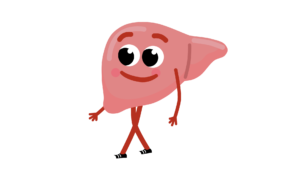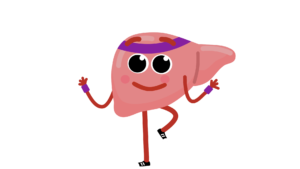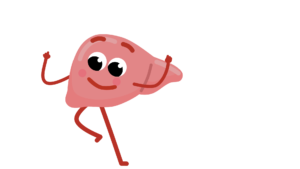Introduction
- If you haven’t exercised in a while, now is a great time to take the first step, and add some physical activity to your day.
- Being active and moving your body for at least 30 minutes a day can help to improve physical health, wellbeing, mood, and energy levels.
- Being overweight or obese can increase liver damage risk, so maintaining a healthy weight can help your liver.
- Weight loss can decrease the body’s demand on the liver and improve its ability to function. Here are some helpful tips from O’liver.
Benefits of physical activity on general health and well-being
- Reduce the risk of or help manage chronic conditions
- Develop a healthier body weight and assist with weight loss
- Improve mental health and wellbeing.
Benefits of physical activity for the liver
The liver is the second largest organ in the human body and performs a number of functions to keep our bodies performing optimally. Excessive weight can affect the liver’s ability to perform these functions and can contribute to liver damage. If the damage to the liver is left unaddressed it can progress through several stages of liver disease before resulting in liver failure.
If you are new to exercise or have not exercised in a while, maybe start by building some physical activity in your everyday activities.
Physical activity in day-to-day life



Here are some tips to incorporate physical activity into your day-to-day life:
Daily Commute
- Park further away from your destination and walk the rest of the way
- Get off the train a few stops early and walk the rest of the way
- Stand on public transport instead of sitting
- Walk or cycle to your destination
- Take the stairs instead of the elevator or escalator.
Work Environment
- Use a standing desk and alternate between sitting and standing
- Set an alarm for every hour or so to remind you to get up and move
- Take a walk on your lunch break
- Organise a walking meeting
- Walk to deliver a message instead of emailing your colleague
- Move your rubbish bin away from your desk so that you must get up and walk over to use it.
Family Environment
- Play actively with your kids
- Take your dog for a walk
- Go on a family bike ride
- Walk at least part of the way to school with your kids.
- Clean the house – vacuum or mop to get your blood pumping
- Set a timer on the TV as a reminder to hop up and move after an hour
- Listen to podcasts or recorded books while you walk.
Community environment
- Join a walking group
- See what activities are being run through your local community centre
- Locate the nearest walking trail.
Indoor activities
- Bodyweight activities
- Dancing
- Indoor sports
- Yoga or Pilates
- Other.
You may also like to speak with a fitness professional/lifestyle coach to tailor a regime suited to your ability and personal needs.
Links:
1. Department of Health 2019b, Physical Activity, Department of Health, retrieved 5 August 2019
2. Better Health Channel 2018,Liver, Department of Health and Human Services, retrieved 5 August 2019
3. Better Health Channel 2018, Physical activity – it’s important, Department of Health and Human Services, retrieved 5 August 2019






